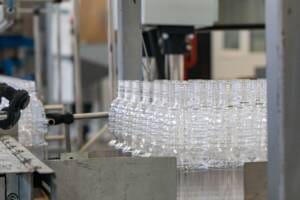
The pasteurized egg industry is one of the vital sectors in the modern food industry, as it contributes significantly to ensuring food safety and quality. If you are considering a pasteurized egg factory project, this article provides you with a comprehensive guide on how to manufacture and produce pasteurized eggs, in addition to the basic processes that the product goes through from receiving raw eggs until they are delivered to the markets.
Pasteurized eggs are one of the essential products that guarantee consumers eggs free of harmful contaminants such as salmonella, which opens up wide horizons for you to invest in this vital sector.
What are pasteurized eggs and how are they produced?
Pasteurized eggs are eggs that have undergone a precise heat treatment process aimed at killing harmful bacteria such as salmonella, while maintaining their nutritional quality. This is done through the pasteurized egg factory project using complex techniques that ensure the freshness of the eggs and their ability to retain high nutritional properties for a longer period compared to fresh eggs.
Steps for manufacturing pasteurized eggs in the pasteurized egg factory project
1- Receiving and examining eggs
The first stage in the pasteurized egg production process is receiving the eggs from the farms. At this stage, the eggs are examined to ensure that there are no damage or breakages. Only healthy eggs are selected to ensure that the final product is of high quality. After inspection, the eggs are thoroughly cleaned using special techniques to remove any impurities that may be stuck to the shell.
2- Cleaning and Pre-treatment Process
Before starting the pasteurization process, the eggs undergo a thorough cleaning process using clean water and rotating cylinders to remove any surface contaminants. This process is necessary to ensure that the eggs are of high quality and do not contain any bacteria that may be transmitted during heat treatment.
3- Heat treatment in the pasteurized egg factory project
Heat treatment is one of the most important stages of the pasteurized egg factory project. At this stage, the eggs are heated using special techniques so that their temperature reaches about 57-60 degrees Celsius. This temperature is maintained for a period of time ranging from 3 to 5 minutes. Through this process, any harmful bacteria are completely eliminated without affecting the eggs nutritionally or taste.
The treatment is carried out in a carefully controlled environment, so that the specified temperature is not exceeded to ensure that all nutritional values of the eggs are preserved. This stage contributes to making pasteurized eggs safer for human consumption compared to fresh eggs.
4- Rapid Cooling and Testing
After the eggs undergo the heat treatment process, they are rapidly cooled through advanced cooling systems in the pasteurized egg factory project. This process is important to keep the eggs at a safe temperature and prevent any bacterial growth that may occur if the eggs remain at high temperatures for a long time. Periodic tests are conducted to ensure that all pasteurized eggs have been properly processed according to health specifications.
5- Packaging and Storage
After the pasteurized eggs are ready, they are packed in safe containers. These containers are stored in low-temperature environments, which contributes to maintaining the quality of the eggs for a longer period. After packaging, pasteurized eggs are distributed to markets or various industries that use them in the production of ready-to-eat foods or food ingredients.
Practical Benefits of Pasteurized Egg Production
Through the pasteurized egg factory project, many practical benefits can be achieved:
1-Increased food safety: By eliminating harmful bacteria, pasteurized eggs become safer for consumption, reducing the possibility of food poisoning.
2-Improved quality: By using precise heat treatment techniques, the nutritional properties of eggs are preserved while improving their overall quality.
3-Extended shelf life: Since pasteurized eggs undergo a precise sterilization process, they retain their quality for a longer period, reducing spoilage and providing greater convenience for consumers and manufacturers.
4-Expansion in markets: With the increase in health awareness, the demand for pasteurized eggs is growing, providing great opportunities for manufacturers to increase their share in local and international markets.
Equipment used in the pasteurized egg factory project
The pasteurized egg production process requires specialized equipment to ensure efficient processing and accurate monitoring of each step of the process. The main equipment in the pasteurized egg factory project includes:
1-Heat treatment devices: which heat the eggs to a specific temperature with time control.
2- Cooling systems: which cool the eggs quickly after processing to maintain their quality.
3- Inspection and cleaning devices: to inspect the eggs before and after processing, and ensure that they are free of any defects.
4- Packaging equipment: to pack the eggs in guaranteed and safe containers.
Innovation in heat treatment techniques for pasteurized eggs
One of the factors that distinguishes the pasteurized egg factory project from other food projects is the advanced technology used in the heat treatment process. Most pasteurized egg factories rely on innovative technologies that allow for an ideal balance between temperature and time to ensure the elimination of harmful bacteria without affecting the nutritional value of the eggs. Some factories use high-pressure pasteurization techniques, which provide greater efficiency in killing microbes, while at the same time maintaining the texture and taste of the eggs. This innovation can have a significant impact on the quality of the final product and consumer safety.
How to achieve efficiency in the operations of the pasteurized egg factory project
In the pasteurized egg factory project, achieving production efficiency is a priority for the project to ensure business continuity and profitability. Efficiency can be improved in several ways:
1-Improving inspection mechanisms: Using advanced inspection systems such as X-rays to detect any cracks or damage in eggs, which reduces waste.
2-Temperature control: Ensuring the use of heat treatment technologies that enable achieving health standards without increasing energy consumption.
3-Storing pasteurized eggs: Modern cooling technologies contribute to ensuring that the quality of eggs is maintained for a longer period, allowing for the storage of larger quantities without worrying about spoilage.
Integration between production stages in the pasteurized egg factory project
One of the key factors that contribute to the success of the pasteurized egg factory project is the precise coordination between all stages of production. From receiving eggs from farms to packaging and distribution, all operations must be integrated so that each stage facilitates the next stage. For example, the cleaning process must be done quickly and efficiently to ensure that the eggs are ready for heat treatment. While the cooling stage needs to be done as quickly as possible to maintain the freshness of the eggs. This requires good coordination between equipment and technicians to achieve the highest levels of quality at the lowest cost.
The Role of Quality in Ensuring the Success of a Pasteurized Egg Factory Project
One of the most important factors that ensure the success of a pasteurized egg factory project is quality at all stages of production. Quality is not limited to the final product only, but includes all the processes that the eggs go through, starting from receiving and inspecting to storage and distribution. To obtain a high-quality pasteurized egg product, the factory must be equipped with the latest technology at every stage of production.
For example, quality control systems can be used that monitor temperature changes during the heat treatment process to ensure that the eggs are properly treated. Periodic tests can also be conducted on samples of pasteurized eggs to verify that they are free of any contaminants or harmful bacteria. This continuous attention to quality contributes to building a strong reputation for the factory and enhances consumer confidence in the product.
The Impact of the Pasteurized Egg Factory Project on Consumer Health
Amidst growing concerns about food safety, the pasteurized egg factory project plays an important role in promoting consumer health. Pasteurized eggs are an ideal choice for those looking for safe and healthy food, especially in products such as mayonnaise and desserts that contain raw eggs. By eliminating harmful bacteria such as salmonella without affecting the nutritional value, pasteurized eggs help reduce the risk of food poisoning and provide additional protection for consumers.
In addition, the increasing health awareness in the community is increasing the demand for pasteurized eggs, making this project a profitable investment option. Instead of being limited to fresh eggs that may pose a health risk if stored or prepared incorrectly, pasteurized eggs are an ideal solution that can improve the overall level of food safety.
Environmental Sustainability in Pasteurized Egg Factory Project
In our modern world, attention to environmental sustainability in various industries has become a must. The pasteurized egg factory project is no exception to this trend. Manufacturers can improve the sustainability of operations by using sustainable heat treatment technologies that consume less energy, reducing their environmental footprint. Furthermore, manufacturers can adopt water and packaging recycling systems to reduce waste and protect the environment.
Taking steps towards sustainability helps build a strong reputation for the factory and increase its attractiveness in global markets, where environmentally friendly products are increasingly in demand.
The pasteurized egg factory project represents a promising opportunity for investors in the food industry, combining modern technologies with the growing demand for healthy and safe foods. By adhering to the highest standards of quality and processing, manufacturers can provide a pasteurized egg product that contributes to enhancing the health of consumers and reducing the health risks associated with raw eggs.
If you are thinking of starting a pasteurized egg factory project, or want to improve your current operations, ProNano Food Industry Consulting Company provides you with full support and specialized advice. With its extensive experience in the field of food consulting, ProNano can help you successfully implement the project and achieve your business goals. Contact ProNano today to receive your specialized technical and management advice in the pasteurized egg industry.
Read more about the central bakery in the cafes



